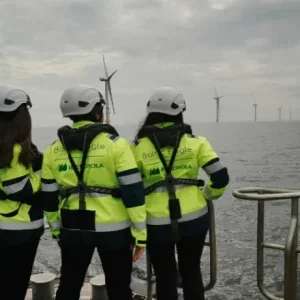
In particular, the funding will be used for new research, development, and demonstration projects with focus on advancing marine and hydrokinetic (MHK) energy systems which can generate electricity from waves, tides, and currents.
The project will also improve environmental monitoring technologies to help minimize environmental impacts.
In addition to supporting projects that reduce the cost of electricity from MHK systems, the funding will help protect the marine environment while increasing sustainable electricity generation from ocean and river energy resources.
Up to 10 projects are planned to be selected for technology development and demonstration, as well as market acceleration and deployment.
The Office of Energy Efficiency and Renewable Energy will fund the projects to integrate next-generation MHK hardware and software technologies into existing wave and current energy conversion systems and demonstrate improved systems in full-scale, open-water tests for a one-year period.
The projects will also design, test, and validate environmental monitoring technologies that quantify the impacts of MHK systems in marine settings, such as acoustics, electromagnetic fields created by MHK devices and subsea cables.
Recently, the US DOE selected nine teams as finalists in the Wave Energy Prize, a 20-month design-build-test competition that aims to double the energy captured from ocean waves in order to reduce costs.
Image: US plans to advance marine and hydrokinetic (MHK) energy systems which can generate electricity from waves, tides, and currents.Photo: courtesy of the Pacific Northwest National Laboratory’s (PNNL) Marine Sciences Laboratory/.






